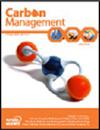三连发挑战:一切照旧,负责任的农业,以及作为全球泥炭地管理轨迹的保护和恢复
IF 3.2
4区 环境科学与生态学
Q3 ENVIRONMENTAL SCIENCES
引用次数: 0
摘要
泥炭地是全球重要的碳储存库,但从高纬度到热带的泥炭地生态系统由于日益密集的人类活动而高度退化,使其成为重要的温室气体(GHG)来源。通过恢复泥炭地作为净碳汇的功能,泥炭地的恢复和保护已被提议作为一种基于自然的气候变化解决方案,但这可能会对许多依赖与转化泥炭地有关的活动(特别是那些用于农业的泥炭地)的收入的当地社区产生影响。然而,如果不改变人类与大多数地区的泥炭地互动和开发的方式,泥炭地将继续退化和消失。我们提出,泥炭地管理最终有三种可能的发展轨迹:一切照旧,泥炭地碳汇能力继续受到侵蚀;负责任的农业管理(有可能减少排放,但不太可能将泥炭地恢复为净碳汇);以及恢复和保护。我们将其称为“三连冠挑战”,并提出将其作为一种手段来看待恢复泥炭地对环境的好处,以及这种转变对依赖退化泥炭地生态系统服务(特别是供应)的社区的影响,以及缺乏行动所产生的后果。最终,关于特定地区泥炭地将遵循何种发展轨迹的决定,需要公平决策的原则,以及确保公正过渡的支持,特别是对依赖泥炭地生态系统维持生计的社区。本文章由计算机程序翻译,如有差异,请以英文原文为准。
The three-peat challenge: business as usual, responsible agriculture, and conservation and restoration as management trajectories in global peatlands
Peatlands are a globally important carbon store, but peatland ecosystems from high latitudes to the tropics are highly degraded due to increasingly intensive anthropogenic activity, making them significant greenhouse gas (GHG) sources. Peatland restoration and conservation have been proposed as a nature-based solution to climate change, by restoring the function of peatlands as a net carbon sink, but this may have implications for many local communities who rely on income from activities associated with transformed peatlands, particularly those drained for agriculture. However, without changing the way that humans interact with and exploit peatlands in most regions, peatlands will continue to degrade and be lost. We propose that there are ultimately three potential trajectories for peatland management: business as usual, whereby peatland carbon sink capacity continues to be eroded, responsible agricultural management (with the potential to mitigate emissions, but unlikely to restore peatlands as a net carbon sink), and restoration and conservation. We term this the three-peat challenge, and propose it as a means to view the benefits of restoring peatlands for the environment, as well as the implications of such transitions for communities who rely on ecosystem services (particularly provisioning) from degraded peatlands, and the consequences arising from a lack of action. Ultimately, decisions regarding which trajectories peatlands in given localities will follow torequire principles of equitable decision-making, and support to ensure just transitions, particularly for communities who rely on peatland ecosystems to support their livelihoods.
求助全文
通过发布文献求助,成功后即可免费获取论文全文。
去求助
来源期刊

Carbon Management
ENVIRONMENTAL SCIENCES-
CiteScore
5.80
自引率
3.20%
发文量
35
期刊介绍:
Carbon Management is a scholarly peer-reviewed forum for insights from the diverse array of disciplines that enhance our understanding of carbon dioxide and other GHG interactions – from biology, ecology, chemistry and engineering to law, policy, economics and sociology.
The core aim of Carbon Management is it to examine the options and mechanisms for mitigating the causes and impacts of climate change, which includes mechanisms for reducing emissions and enhancing the removal of GHGs from the atmosphere, as well as metrics used to measure performance of options and mechanisms resulting from international treaties, domestic policies, local regulations, environmental markets, technologies, industrial efforts and consumer choices.
One key aim of the journal is to catalyse intellectual debate in an inclusive and scientific manner on the practical work of policy implementation related to the long-term effort of managing our global GHG emissions and impacts. Decisions made in the near future will have profound impacts on the global climate and biosphere. Carbon Management delivers research findings in an accessible format to inform decisions in the fields of research, education, management and environmental policy.
 求助内容:
求助内容: 应助结果提醒方式:
应助结果提醒方式:


